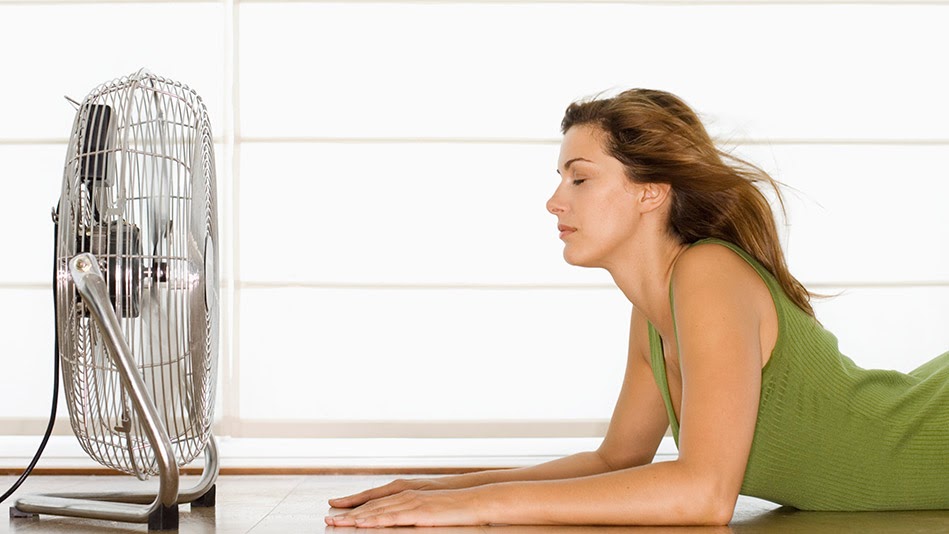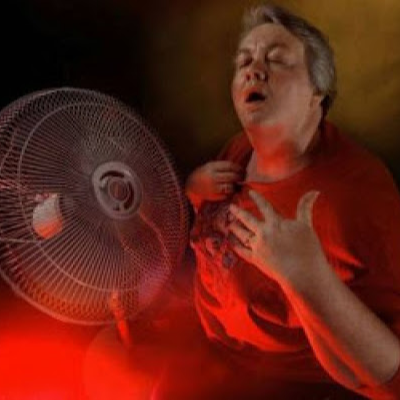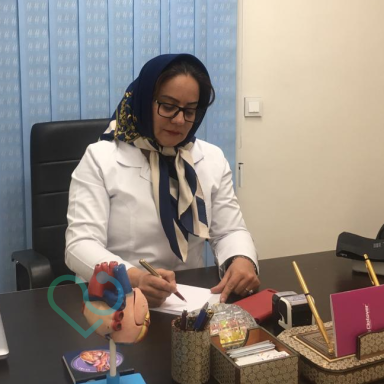What is Hot Flash?
Hot flash is a sudden sensation of intense heat that is not caused by an external source. A hot flash may appear suddenly or be a feeling that lasts for several minutes.
Symptoms of Hot Flash
Symptoms of hot flash may include:
- - Sudden warmth in the skin.
- - Redness in areas such as the face, neck, ears, or chest.
- - Sweating, especially in the upper body.
- - Tingling sensations in the fingers.
- - A faster than usual heartbeat.
- - Many people feel cold or experience chills after the hot flash subsides.

Hot flash is one of the common symptoms of menopause. Women going through menopause may experience hot flashes several times a day.
However, menopause is not the only cause of hot flash, and anyone can experience it. The duration and frequency of this sensation depend on the triggers causing it.
Causes of Hot Flash
It is believed that hormonal changes in your body cause hot flashes. Hormonal imbalances can have various triggers, including:
- - Conditions such as diabetes.
- - Tumors.
- - Specific forms of birth control.
- - Eating disorders.
Other potential causes of hot flashes include spicy foods, alcohol, hot beverages, caffeine, being in a warm room, smoking, wearing tight clothing, stress and anxiety, pregnancy (especially in the first and second trimesters), hyperthyroidism or hypothyroidism, chemotherapy, radiation therapy, spinal lesions, and the use of certain medications.
Lifestyle Changes and Strategies to Manage Hot Flash
Many people can manage hot flashes at home by implementing some strategies. One way to identify the triggers of hot flashes is to keep a symptom diary, noting all details, including the foods consumed before the onset of a hot flash. This method helps reduce the triggers of hot flash and determine which lifestyle adjustments can help prevent it.
Strategies to Combat and Manage Hot Flash
Lifestyle changes and management strategies for hot flash include:
- - Wear layered clothing, even on the coldest days, so you can adjust your layers based on how you feel.
- - Drink ice water at the onset of a hot flash.
- - Use a fan while sleeping.
- - Lower the room temperature.
- - Wear cotton clothing and use cotton sheets.
- - Keep an ice pack near your bed.
- - Avoid consuming spicy foods.
- - Limit alcohol intake.
- - Restrict hot beverages and caffeine consumption.
- - Quit smoking.
- - Practice stress-reduction techniques, such as yoga, meditation, or guided breathing.
- - Avoid high-fat and sugary foods.
To combat hot flashes during pregnancy, keep the room cool, wear loose-fitting clothes, wash your face with cold water, and try to avoid warm and crowded areas. If lifestyle changes and strategies are ineffective or your condition is severe, your doctor may prescribe medication to help manage hot flashes.
Natural Treatments
Some individuals prefer using natural or alternative remedies to treat hot flashes. One option is acupuncture. A 2016 study on 209 women who experienced four or more symptoms of menopause daily showed that acupuncture significantly reduced their menopause symptoms, including hot flashes and night sweats.
The most suitable treatment method depends on the cause of the hot flashes. However, you can probably manage the symptoms at home by making lifestyle changes. The causes of hot flashes are diverse, and if you experience frequent hot flashes that do not subside, consult a doctor.












Our Customers' Comments
No comments registered